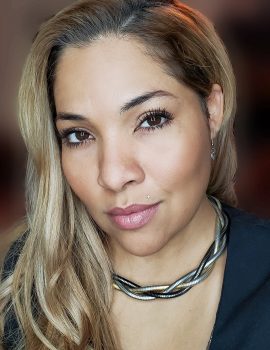Manifesting Self-confidence
Do Whatever the Hell You Want
Written By Alethea Jimison

Alethea Jimison
The Wordsmith
Everyone is born confident
You’re here to learn about self-confidence, huh? What if I told you that you were actually born with it?
No, it’s true! I promise you that at one time in your life as a baby, infant or toddler, you probably believed that you would always have everything that you needed; shelter, food, love, and more.
So what went wrong? Well, unfortunately, it usually starts out with another person telling you that you are wrong. At some point in your life, someone told you that your perspective, your actions, and your voice were not valid. This is the first step to generating self-doubt. This is when our sense of self-knowing is attacked. I see this happen around the age of the terrible twos,’ which I call the age of self-discovery. Well-meaning adults will systematically suppress the budding independence of a toddler with the smothering love of paranoia and good intentions.
What causes poor self-esteem?

We are taught as children to hide who we are.
When we are children, we are innocent and honest about what we want and how we feel. Unfortunately, we are taught to hide these things.
For example, if a two-year-old says to another person, “your breath stinks!” this may be an uncomfortable experience for anyone with bad breath, but the toddler was merely stating an observation and communicating his/her experience.
Usually, the parent will immediately hush the toddler with an embarrassed grimace of apology.
In this instance, the child did nothing wrong and was not attempting to be cruel; however, this tiny little human was just taught that honesty is rude.
Another example of identity suppression is when a child refuses to share a toy and is made to share with another sibling or classmate. In this instance, the child was forcefully urged to “be nice.”
Forcing someone to share does not automatically teach them the value of community. Values are not forced, they are realized through self-awareness.
In this instance, the youth is being compelled to share so that the perception of other people is that the child is a “nice kid,” and therefore acceptable to society.
To put it bluntly, the reason most people are not confident is because we’ve been told to shut up and be nice for most of our lives.
So, how do we manifest self-confidence?
Let’s talk about my qualifications before I instruct you on how to manifest anything. The first question you should ask me is, “Why are you qualified to teach anyone about self-confidence?”
My answer is simple, it’s not because I have a psychology degree- that’s for sure! I’m just highly delusional because I believe I can do whatever I want to. I have this ability to talk myself into doing things I’ve never done, fail during the learning process and magically produce some damn good results that end up being above average.
What Does Positive Self-image Mean to You?
- “Someone who stands up for themselves even when others criticize them for something they do.”
- “When I hear self-confidence, I picture someone who walks into a room with no focus or attention on the thoughts of what others think. Instead, I picture someone who is immersed in their own visions and purpose that they depend on their higher self and Spirit for clarity. ”
- “Self-confidence is the sense of knowing one’s worth! Confident people hold themselves in high regard. Insecure people manifest fear.”
What is Confidence for me?
- Confidence is not fearlessness- it’s action despite fear. It is not an adjective or a noun; it is a verb. It is a state of being.
- Confidence comes from the understanding and the acceptance that you may mess something up; however, you need to know that you have the power to fix it.
- We’re just regular people who can’t afford a time machine to go back into the past to fix our cluster, so know that you will mess something up and come up with a Plan B.
Before you can fix a problem, you need to target a specific area in your life that you struggle with the most
- Career
- Personal Relationships
- Finances
- Image/Reputation
What part of your life is affected by low self-esteem?

It’s not uncommon to have areas in your life that you are confident about while still struggling with self-esteem issues. For example, you may be confident that you are an attractive person over-all but you struggle with body dysmorphia. This is the area of image/reputation. People who struggle with body dysmorphia have a fear of judgment of what people see when they are looked at. Of course, it could also be because they are not putting the full effort into maximizing their physical health, so they are not living in their full potential.
A lack of confidence comes from a lack of action
If you lack confidence in your career, it is because of staying in your thoughts instead of focusing on creating action. You are stewing in the crappy diaper of your imagination, thinking about all the things that could go wrong versus the possible benefits of making a change. This is why it is so important to create an action plan and map out how you want to change your life. Let’s say that you are working at a company that you are unhappy working for. You don’t make enough money, and the environment is stressful. What’s keeping you there?
This is where you need to weigh the pros and cons of making a change. You need to assess the possible outcomes for the best and the worst things that could happen. As long as you aren’t killing anyone, dying, or committing a crime, I believe you can be flexible with your life and make some adjustments. Once you’ve assessed these factors, the next thing you can do is come up with an alternative Plan B for when things don’t go your way.
Be strategic and don't self-sabotage


As I’ve stated before, it’s necessary to be aware that things can go wrong. When taking action in your life to make a change, it’s important to avoid self-sabotage by making sure you surround yourself with the right people.
Your friends will always try to give you the best advice on how you should live your life, but you don’t have to listen. I would never ask my doctor how to rebuild my transmission, nor would I ask my mechanic how to perform open-heart surgery.
This is my way of saying, don’t ask your broke-ass friends for financial advice. Don’t ask that one friend who’s been divorced three times for relationship advice. You need to trust yourself enough to be the expert in your own life.
Your thoughts are the waste product of action
Stop thinking about the things you want to do and just do it.
- Create an action plan for your desires
- Make sure you have a Plan B in place
- Surround yourself with cheerleaders and people you want to learn from
- Do whatever the hell you want to
Whose permission are you waiting for? It’s your life-go live it!